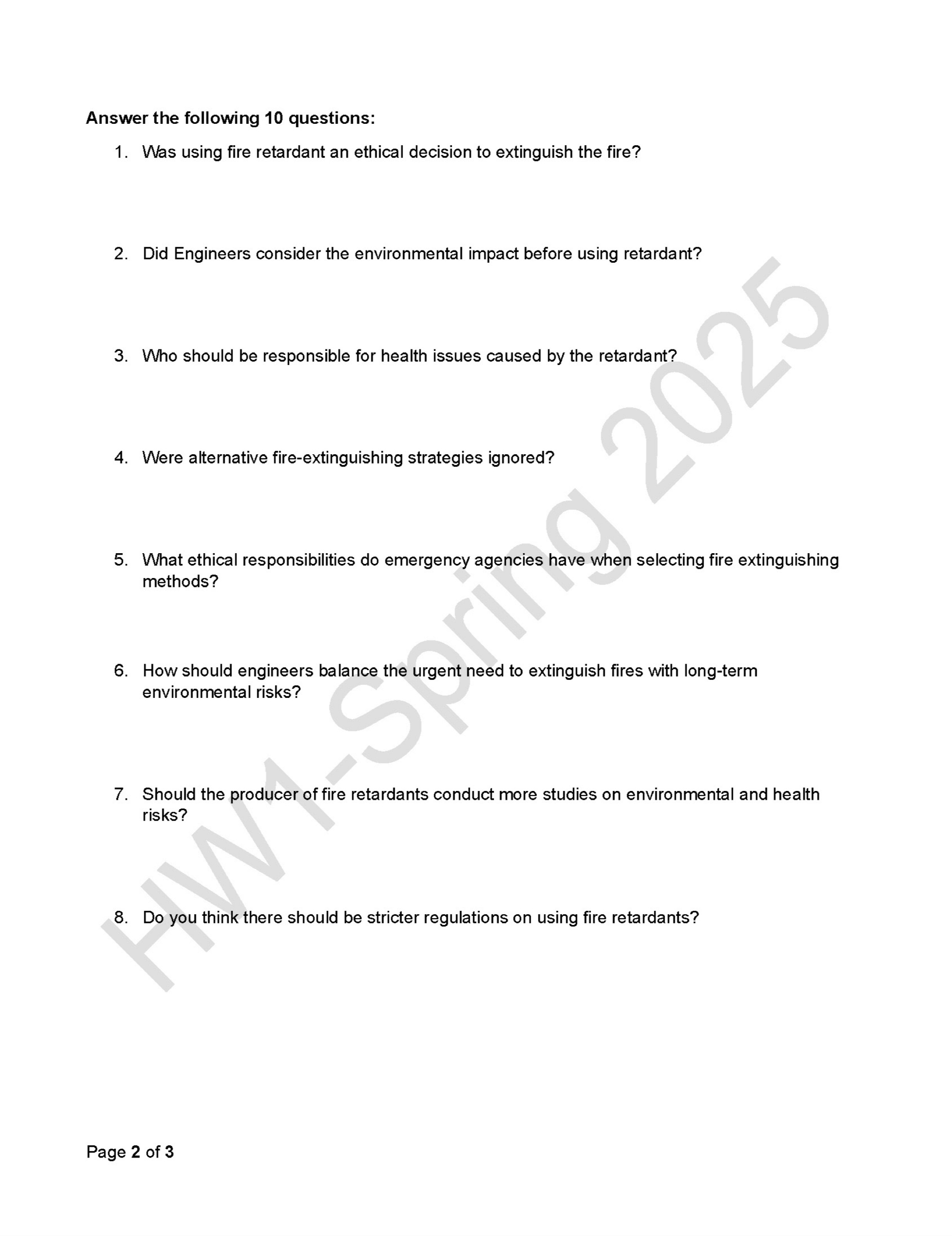Was using fire retardant an ethical decision to extinguish the fire? Did engineers consider the environmental impact before using retardant? Who should be responsible for health is... Was using fire retardant an ethical decision to extinguish the fire? Did engineers consider the environmental impact before using retardant? Who should be responsible for health issues caused by the retardant? Were alternative fire-extinguishing strategies ignored? What ethical responsibilities do emergency agencies have when selecting fire extinguishing methods? How should engineers balance the urgent need to extinguish fires with long-term environmental risks? Should the producer of fire retardants conduct more studies on environmental and health risks? Do you think there should be stricter regulations on using fire retardants?

Understand the Problem
The question is asking about ethical, environmental, and regulatory considerations related to the use of fire retardants in fire extinguishing efforts. It prompts a discussion on responsibility for health impacts, evaluation of alternative strategies, and recommendations for future studies and regulations.
Answer
Using fire retardants can be ethical if emergencies justify their use, but environmental impacts should be considered more thoroughly by engineers and stricter regulations might be necessary.
- Using fire retardants can be ethical if it prioritizes immediate life safety, though the environmental impact must be considered. 2. Engineers may not always fully consider environmental impacts. 3. Responsibility may lie with producers or emergency agencies. 4. Alternatives might be ignored due to urgency. 5. Agencies should balance safety with environmental concerns. 6. Prioritize immediate risk mitigation, but factor in long-term effects. 7. Yes, more studies are needed. 8. Stricter regulations could ensure better environmental protection.
Answer for screen readers
- Using fire retardants can be ethical if it prioritizes immediate life safety, though the environmental impact must be considered. 2. Engineers may not always fully consider environmental impacts. 3. Responsibility may lie with producers or emergency agencies. 4. Alternatives might be ignored due to urgency. 5. Agencies should balance safety with environmental concerns. 6. Prioritize immediate risk mitigation, but factor in long-term effects. 7. Yes, more studies are needed. 8. Stricter regulations could ensure better environmental protection.
More Information
Fire retardants can be crucial in preventing immediate disaster but may pose long-term environmental and health risks. Balancing these concerns requires thoughtful consideration and possibly updated regulations.
Tips
A common mistake is not considering long-term environmental impacts when making urgent decisions, and missing out on exploring less harmful alternatives.
Sources
- Protection Handbook for the Fire and Rescue Service. - GOV.UK - assets.publishing.service.gov.uk
- FLUORINE-FREE FIREFIGHTING FOAMS (3F) - IPEN.org - ipen.org
AI-generated content may contain errors. Please verify critical information